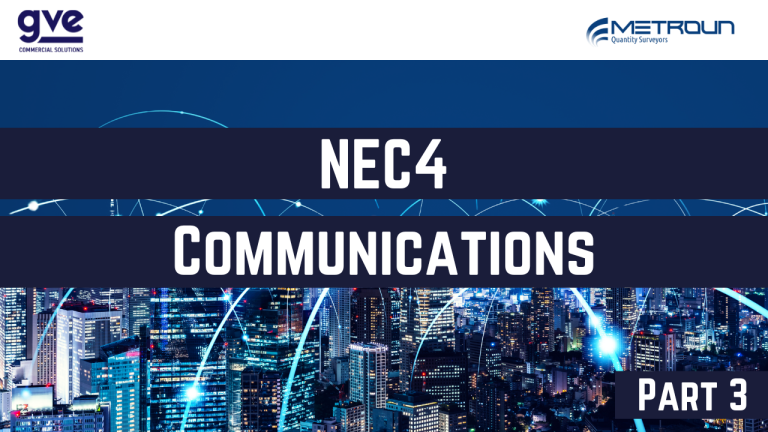In case you missed them, the previous two posts are right below: the first covers compliance and a background in NEC4 communication, and the second explains authority and service and communication systems. Now, here’s this week’s focus: instructions and notifications.
NEC4 Contracts – Instructions
An instruction is essentially a directive or order and is given by the party or named role stated in the contract.
An instruction usually requires some form of action to be taken by the recipient, either to do something or stop doing something.
Under NEC4 contracts an instruction may be given for reasons specified in the contract, including the following;
- Change to the Scope (Subcontract Scope),
- Change to a Key Date,
- Attend an early warning meeting,
- How a prevention event is dealt with,
- Removal of a person,
- Submission of a particular document,
- To stop work,
- To search for a Defect,
- Correcting a mistake in a document.
NEC contracts expressly require an instruction, given in accordance with the contract, to be obeyed by the recipient.
Check to ensure that a person giving an instruction has authority, which may have been provided by a notified delegation.
A limitation on what may be instructed is determined by either the contract itself or the law of the contract. An example could be where part of the scope of work is instructed to be omitted and subsequently given to another supplier. The authority for such an instruction may be provided for within the contract, otherwise the law of the contract would determine the extent to which such an instruction may be given.
NEC4 Contracts – Notifications
A notification is particularly required where the information being communicated has contractual importance or significance and is essentially bringing a matter to the recipient’s attention.
All the ‘long form’ NEC4 contracts require notifications to be communicated separately from other communications, with the NEC User Guides stating that this is ‘to avoid important things being overlooked’.
A notification commences several important procedures under the NEC4 contracts, including;
- Early warning,
- Defects,
- Finalisation of Defined Cost,
- Compensation event,
- Termination,
- Resolving disputes.
Certain notifications act as a ‘condition precedent’, in that a notification must be given before an action can be taken or a right accrues, including the following;
- Delegating actions,
- Replacing a named role,
- Reminder of a failure to respond to a submitted programme (or plan),
- ‘Supplier’ compensation event notification,
- Reminder of a failure within the compensation event procedure,
- Termination right for specified defaults,
- Intention to pay less than the notified sum.
Although notifications are required to be communicated separately, in certain instances a notification is required to include other ‘types’ of communication, including as follows;
- Acceptance – programme,
- Acceptance – acceleration quotation,
- Instruction – submit quotations for a compensation event,
- Acceptance – compensation event quotation,
- Acceptance – Climate change plan.
Our Services Include:
- Quantity surveying
- Commercial management & contract admin
- Programming & planning
- NEC & JCT contract training
- Expert advice & dispute resolution
With proven expertise in NEC and JCT contracts, our qualified consultants integrate seamlessly with your team, on-site, remotely, or from our offices. We also support change management, dispute avoidance, and adjudication.
Contact GVE here to find out how GVE Commercial Solutions can help your project succeed.










